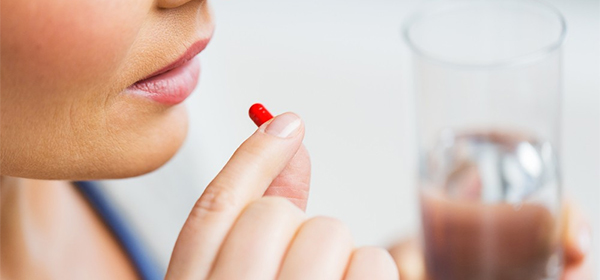A highly addictive drug traditionally used to treat epilepsy is being prescribed at alarming rates for use as a painkiller and as anti-anxiety treatment, doctors say.
Pregabalin, sold under the brand name Lyrica, is an anti-convulsant medication best known as a treatment for epilepsy. It helps to control seizures by acting on the central nervous system, suppressing the excessive rapid firing of neurons.
Suppressing these neurons can also help treat neurological pain – pain caused by an abnormality of, or damage to, the nervous system – and reportedly has mood stabilising and anti-anxiety effects on some patients.
But Sydney psychiatrist Dr Tanveer Ahmed says the drug is being over-prescribed in Australia and an epidemic of addiction and overdoses threatens.
“It is being dished out like lollies,” Dr Ahmed told A Current Affair.
“There really is very little restriction. You can go and get a repeat at a pharmacy without question; you can go to doctors and there is very little monitoring.”
Lyrica has quite a few positive effects. But the list of negative side-effects is long. They can include unsteadiness when walking, reduced coordination, shaking or tremors, dizziness, drowsiness, constipation, diarrhoea, nausea, headache, weight gain, dry mouth and blurred or double vision.
Lyrica is also highly addictive and withdrawal symptoms can be crippling. Insomnia, headaches, nausea, anxiety, diarrhoea, flu-like symptoms, nervousness, depression, convulsions and dizziness have all been reported by people who suddenly discontinue taking the drug.
Christalla Andreadis, 52, was prescribed Lyrica after a car accident in 2017 left her with severe spinal injuries. She is still unable to stop taking the drug completely four years later.
“Now everyone is going to know my dirty little secret,” she says.
“I can’t go on like this, you suffer in silence and when you’re thinking, ‘I can’t do this anymore’, I don’t want to grow old like this.”
Ms Andreadis has been able to reduce her dosage over the past two years, but has been unable to stop taking Lyrica completely.
“This drug gets its claws into your soul. It has taken every fibre of my being, is what it has taken me to try and come off it,” Ms Andreadis says.
Lyrica is manufactured by Pfizer and was added to Australia’s Pharmaceutical Benefits Scheme (PBS) in 2013. Since then, prescriptions of the drug have jumped from around 36,000 per year in 2012 to more than four million in 2018. It is now the most prescribed medicine for pain in Australia.
Earlier this year, the Therapeutic Goods Administration (TGA) released an updated safety advisory for pregabalin warning of the potential for addiction and overdose.
The updated warning came after a TGA investigation found there had been an increase in overdose deaths associated with Lyrica from 16 in 2013 to 121 in 2016. The 2021 Australian Annual Overdose Report shows that number has risen to 154 deaths in 2021.
The same report also showed that Australians aged over 50 now account for more than 40 per cent of all overdose deaths nationally.
Ambulance data also shows that there has been a tenfold increase in the rate of Lyrica-related ambulance callouts since 2012 and that these patients had frequently mixed Lyrica with other sedative medications.
Have you been prescribed Lyrica? Would you support stronger restrictions on the drug? Let us know in the comments section below.
If you enjoy our content, don’t keep it to yourself. Share our free eNews with your friends and encourage them to sign up.

